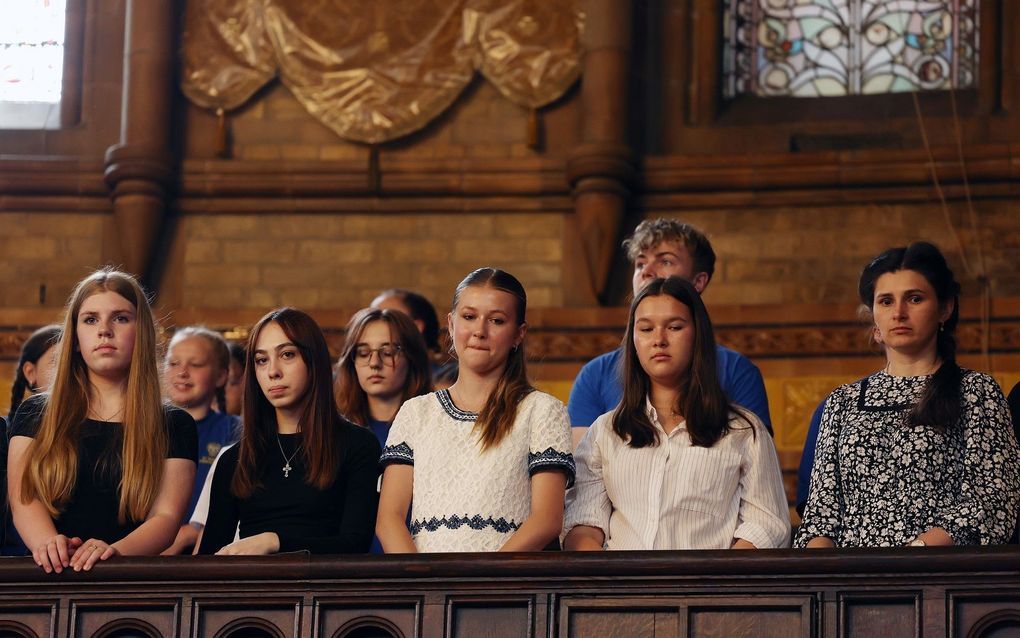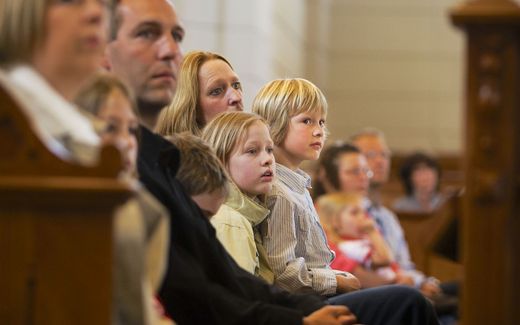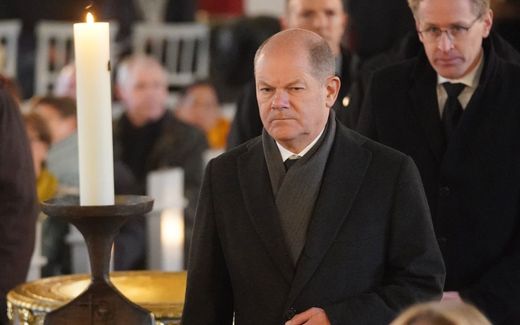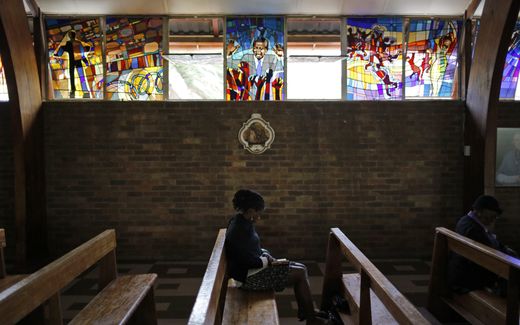Study: faith increasingly divides generations

Ukrainians attend a church service to mark five hundred days of conflict in Ukraine. Photo EPA, Andy Rain
European Union
Western Europe is secularising. But a new study shows that young people increasingly believe in the supernatural despite this.
Faith increasingly divides generations. That is the conclusion of a new research report by Ipsos. Countries with more baby boomers (those born in or before 1964) who say they believe in God (that includes Christians, Muslims and Jews) are less likely to have members of Gen Z (those born in or after 1997) who do. But the opposite is also true: countries with fewer faithful boomers are more likely to have members of Gen Z who do.
The Ipsos research agency surveyed nearly 20,000 people from 26 countries about their belief in God, the devil and the supernatural in general. While not all data are representative for a country, researchers say the data from European countries are.
Migration
In many countries surveyed, younger people are less likely than older adults to identify as Christian and more likely to identify as Muslim or of some other faith. That could be a consequence of migration since the study lists various Western-European countries in which this is the case. In countries such as Great Britain, Sweden and Belgium, Gen Zers are more likely than boomers to be faithful Muslims. In these formerly Christian countries, there are differences of 10 percentage points between the two generational groups.
Harm
The study further states that non-believers form a majority in seven out of 10 European countries surveyed. Nearly half of those surveyed argue in this regard that religion does more harm than good in the world. So sentiment against religion is not too good. However, these views are more common among the boomers than among the Gen Zers.
And there is more. Despite their self-proclaimed lack of faith, the younger people are, the more likely they are to believe in heaven, hell, the devil and supernatural forces.
In several European countries, young people are much more likely than older adults to view religion as a marker of identity. Differences exceed 15 points in Sweden, Great Britain, Germany, and France, where young people are more likely to say they are Muslim.
Related Articles








